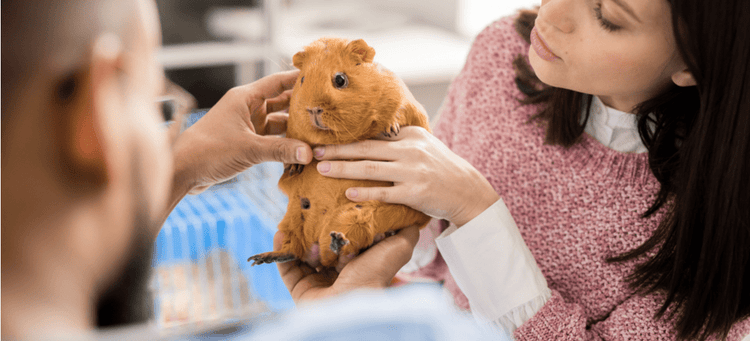
Can Small Mammals Get Heartworms?
Cat and dog owners know that protecting their pets against pests like heartworms is an important part of a veterinary regimen. But what about small mammals, can they become infected with these nasty parasites? Yes. Some small mammals are just as vulnerable to heartworm infection as cats and dogs.
Heartworm Basics
Heartworms are disease-causing and potentially deadly parasites that can live in the heart, lungs, and cardiovascular blood vessels of affected mammals. The worms, which can grow to a foot in length, are transmitted by female mosquitoes who feed on the blood of the infected animals. When a mosquito ingests blood from an animal with heartworms, it also ingests immature parasites (microfilaria). Over the next few weeks, the worms mature into infectious larvae. When the mosquito bites another pet or wild animal, they’ll leave behind some of these larvae, which will mature into adult worms over a period of about six months. These mature worms can live and reproduce inside a dog’s body for 5 to 7 years and a cat’s for around 2 to 3. As mosquitoes bite these infected pets, they’ll continue to spread infection to additional dogs, cats, coyotes, wolves, and other vulnerable mammals in their area.
Treating heartworm infections is a complicated and costly process for pet parents. As such, veterinarians recommend treating pets with anti-heartworm medications throughout the year. Preventive measures are especially crucial in regions with large and active mosquito populations.
The American Heartworm Association encourages pet owners to “think 12” when it comes to keeping four-legged family members safe. That is, they should have their pets tested for heartworm infection every 12 months and treat them against infection all 12 months of the year.
Can Hamsters Get Heartworms?
No. Hamsters are not vulnerable to heartworm infection, though they may develop abscesses, respiratory infections, and a highly-contagious bacterial disease known as “wet tail,” among other conditions. Because of their size and resistance to restraint, hamsters can prove difficult to medicate.
Can Rabbits Get Heartworms?
No. Rabbits cannot become infected with heartworms, even if they’re bitten by mosquitoes carrying the parasites. They can, however, contract another dangerous, mosquito-borne infection. Rabbit haemorrhagic disease virus can cause liver damage and blood abnormalities, leading to about a 70 – 90% mortality rate. Owners can vaccinate their domestic rabbits against the virus.
Can Guinea Pigs Get Heartworms?
No. Though guinea pigs can contract intestinal worms and other parasitic infections, their bodies cannot house heartworms. Guinea pig parents should always work closely with their veterinarian to take whatever preventive measures they can against other conditions and address potential red flags in a timely manner.
Can Ferrets Get Heartworms?
Yes. Like cats and dogs, ferrets are extremely susceptible to heartworm infestation and the resulting symptoms. Because of their comparatively-small hearts, ferrets tend to exhibit signs of infection like lethargy, rapid breathing, and coughing more quickly than cats and dogs. Small hearts and blood vessels also mean that just a small number of worms can spell serious trouble for ferrets. There are no approved drug treatments for ferrets who are infected with heartworms, but owners can both prevent and address infection with the help of their veterinarian.